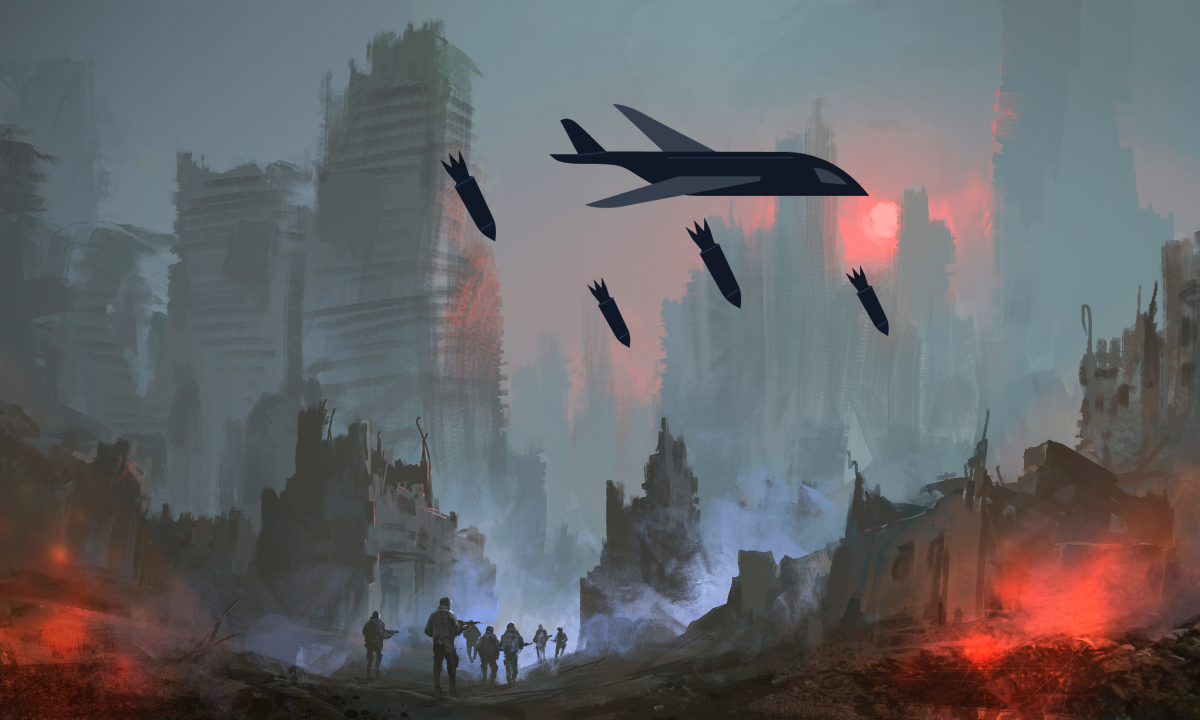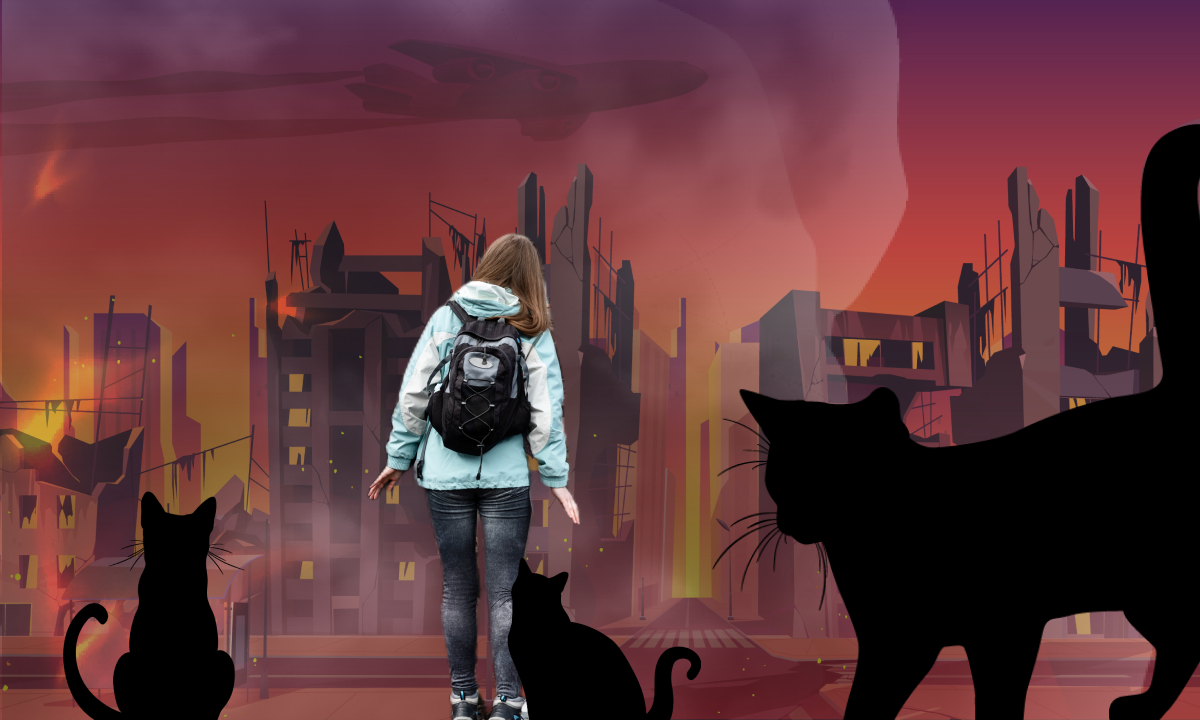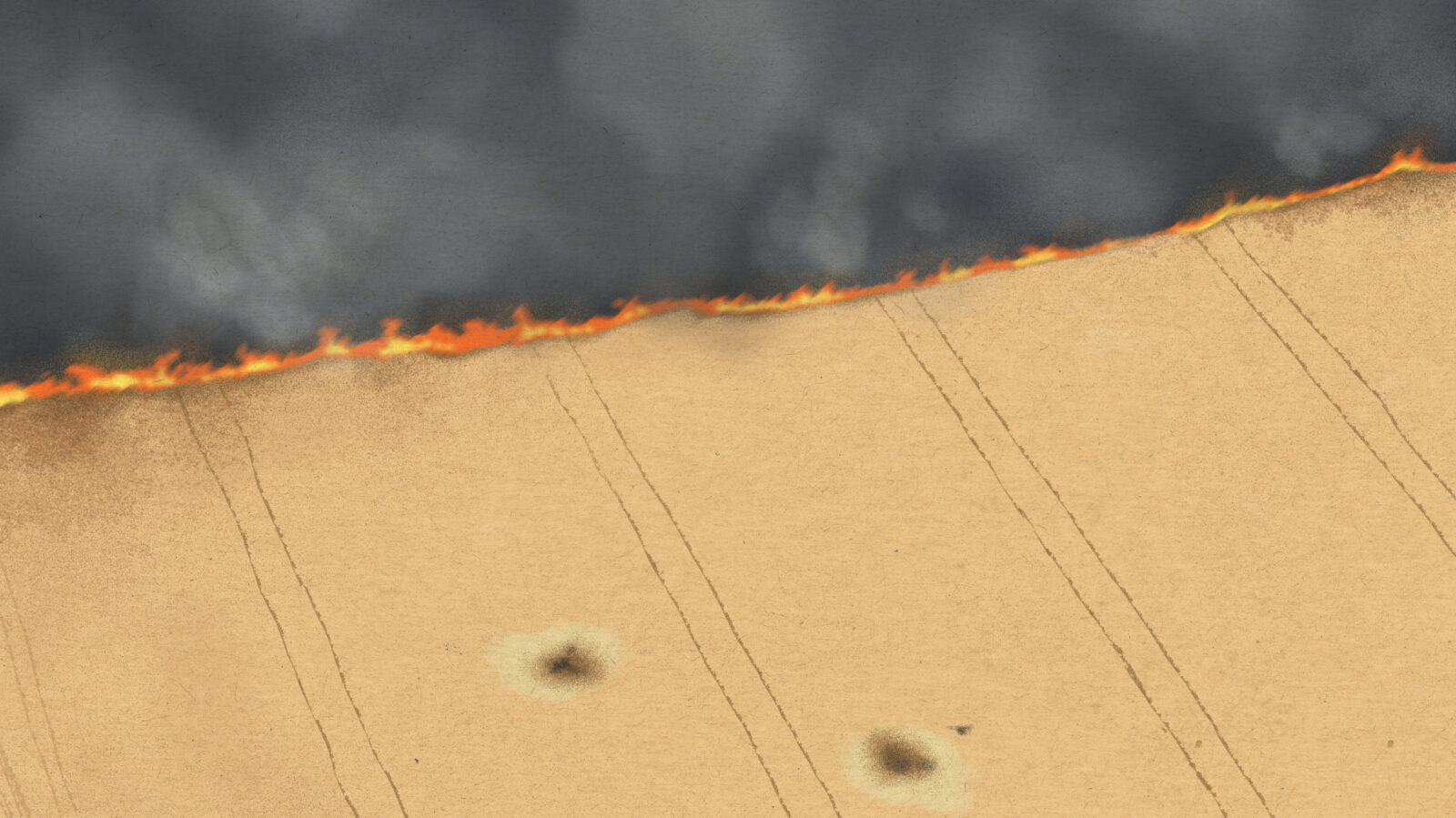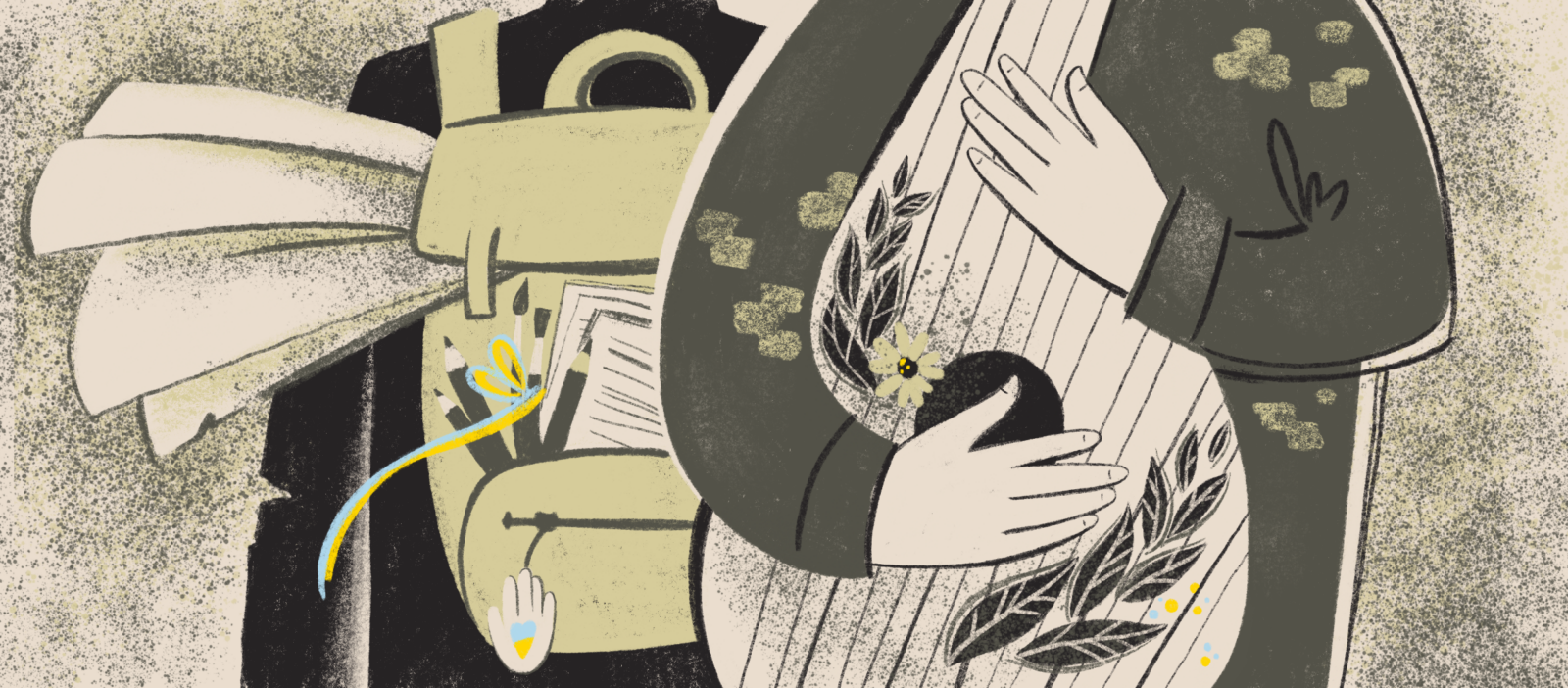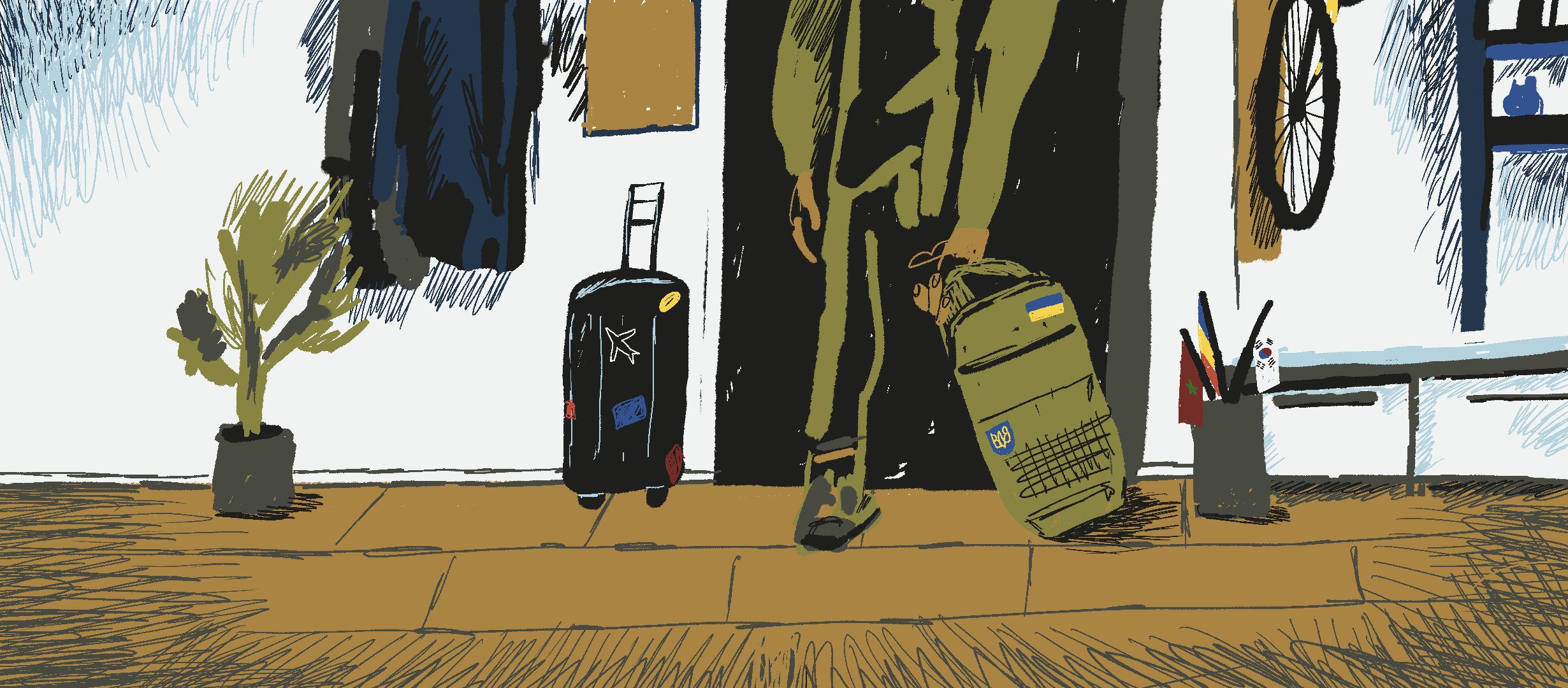Illustrated by Nataliia Shulga
Ivan Perepelytsya, a 33-year-old swimming coach, escaped the town of Bucha in Kyiv region by miracle—maybe that is why all the sentences in his written account end with exclamation marks.
He ended up in Bucha almost by accident. His partner, friends and cat came there because they panicked on the first day of the war. They left Kyiv and headed for this town where they weren’t able to fill up the gas tank but managed to buy some food and water. “At that point we were only interested in one thing: are there any military bases or airports nearby?” Ivan explains.
The air was soon booming with explosions and gunfire. Then the electricity, gas and water disappeared. It became obvious that money spent on food that needed cooking, like cereals and pasta, was wasted. It was impossible to cook anything, but going outside to buy something else was too scary, even though local supermarkets started giving away food for free. To cook some food, the locals started fires and barbecues in the streets. It was impossible to tell how long the town would be blocked, which is why everyone was trying to save food.
“We were very lucky because there was a construction site nearby (of course it was suspended at that time), and it had a well from which we could get some water. There was a generator there, too, which helped us stay connected. Sometimes there were up to 40-50 people trying to charge their phones at once. I can’t imagine how the people who were too scared to leave the basements stayed without a cell connection all that time.”
The friends were hiding in the corridor when they heard the sound of a plane, going very low: “We heard the explosion, the building trembled, the windows were shattered. The apartment building 150 meters from us became a quarter smaller and was burning”.
The temperature in the room started falling, and plugging the cracks didn’t work: “After bombings, the cold became our biggest problem.”
The shelters were too crowded and stuffy, so Ivan and his friends decided to hide in the apartment on the fifth floor of a 10-story building. In case of danger, they would go downstairs to the first floor. Around that time they learned that the invaders started firing at the cars of people trying to evacuate.
“Once, we were watching through the window as Kadyrov’s troops broke into our neighborhood,” Ivan recalls. Their neighbors were talking about the possibility that the city would be “cleaned up” soon. The fact that the locks on the building entrances didn’t work made everything even scarier. “Everyone was hiding in the apartments, barricaded there and didn’t come close to the windows. For 40 minutes we were listening to automatic gunfire.”
Ivan and his friends stayed in Bucha for two weeks. He says that they were waiting for a “green corridor” because they had heard that the occupants were shooting at cars. At last they were told that a “corridor” was opened, and their company decided to take the risk.
“The first thing we heard was that we couldn’t leave by car, all cars were shot at. We joined a line to get on a bus, but there were as many people as at a rock concert, and there were many children, elderly people and women, including pregnant women. We realized that all of us would not be able to leave, and, compared to others, it was not as urgent for us, so we went back to the car.”
In a few hours Ivan was relieved to hear that the line of vehicles had started moving. Then there were five Russian checkpoints where their car was constantly searched, their phones checked, and Russian soldiers asked for cigarettes. They were nervous and anxious to the limit.
“When at last we were met by our troops in the territory controlled by Ukraine, we started crying.”
Translated by Oksana Mekheda





